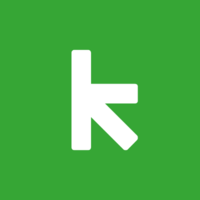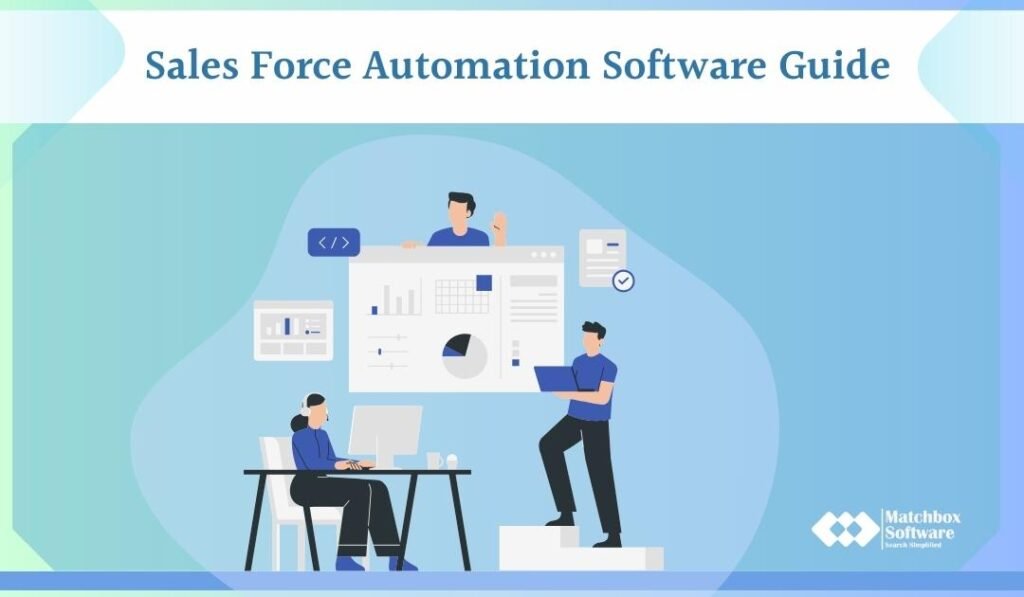Best SFA Software
Boost sales efficiency with our Sales Force Automation (SFA) Software. Simplify processes, track leads, manage contacts, and close deals smoothly. Boost your sales game with data-driven insights and automation.
Featured Softwares
List of 10 Best Sales Force Management (SFA) Software
Have Questions? We can help!
Get personalized recommendations from our experts on call!
Top Trending Softwares

Keap CRM
Keap CRM is a robust customer relationship management software designed to cater to the needs of small and medium-sized enterprises (SMEs), startups, agencies, and larger enterprises.
Table of Contents
What is Sales Force Automation (SFA) software?

Sales force automation software revolutionizes sales management through automated workflows. It establishes a harmonized and efficient sales process, encompassing forecasting precision and performance documentation. This software orchestrates critical business functions such as sales projection, transaction handling, inventory oversight, and monitoring customer engagements. A pivotal facet of these tools involves the adept prediction of sales trends and the meticulous management of business performance.
Certain enterprises opt for tailoring a bespoke iteration of FMCG SFA system (Sales Force Automation Software) that aligns precisely with their requirements. Alternatively, they can select from an expansive array of Sales Force Automation Systems or SFA Software solutions. Diverse online sales software is harnessed by businesses to enhance the efficiency of cross-departmental collaboration and information exchange. Cumbersome and error-prone tasks are supplanted by automated routines, fostering a positive transformation in sales operations.
What are the benefits of Sales force automation?
Sales force automation (SFA) software is a CRM software that helps businesses manage their sales process. It can help companies to track leads, work opportunities and close deals. SFA software typically includes features such as:
• Contact management: This allows businesses to store and track information about their contacts, such as their name, email address, phone number, and company.
• Lead management: This allows businesses to track leads from when they are generated to when they are converted into customers.
• Opportunity management: This allows businesses to track the progress of sales opportunities, from the initial contact to the final sale.
• Sales forecasting: This allows businesses to predict how much revenue they will generate from their sales pipeline.
• Reporting: This allows businesses to generate reports on their sales performance, such as the number of leads generated, the number of deals closed, and the average sales cycle.
• Increased efficiency: SFA software can help businesses streamline their sales process and automate tasks, freeing time for sales reps to focus on more critical activities.
• Improved visibility: SFA software provides businesses with a single view of their sales pipeline, which can help them track their progress and identify opportunities for improvement.
• Better decision-making: SFA software can help businesses make better decisions about their sales strategy by providing insights into their sales performance.
• Increased customer satisfaction: SFA software can help businesses improve customer satisfaction by providing a more personalized and efficient sales experience.
• Reduced costs: SFA software can help businesses reduce costs by automating tasks and eliminating the need for manual data entry.
Why Should Companies Consider Sales Automation?
1. Missed Opportunities
2. Improved Prioritization
3. Enhanced Forecasting and Intelligence
4. Heightened Employee Accountability
5. Strengthened Collaboration and Data Sharing
Implementing sales automation offers an opportunity to enhance sales endeavors, reducing disorganization and shorter sales cycles. This proves essential for monitoring, communicating, evaluating sales performance, and predicting future growth. FMCG Sales Force Automation Software (SFA Software) incorporates various features to optimize business sales activities. These features encompass inventory management, sales forecast analysis, contract administration, quotation and proposal handling, presentation creation, and product management. As indicated by industry experts, there’s a notable shift in the software market, with SMEs and large enterprises adopting top-tier sales force automation software to streamline their business processes.
It is now equipped with an understanding of FMCG mobile sales force automation software, exploring its adoption for your business prudent.
What are the different types of Sales force automation software?
Beyond a mere CRM (CRM Software), the finest sales force automation software or solutions designed for FMCG ventures encompass the minutest intricacies of your operations. What sets these solutions apart is their adaptability to align with your specific business requisites, thereby elevating your sales efficiency.
While opting for all-encompassing software to mechanize every aspect remains an option, the primary categories of SFA applications (Sales Force Automation Software) are at your disposal for overseeing your sales endeavors:
1. Complete ERP Solutions for Sales
2. Sales-centric CRM
3. Price Management System
4. Managerial Oversight of Retail Sales
5. Solutions for Automated Marketing
6. Software for Customer Service
7. Tailored Mobile Sales Force Automation Software catering precisely to your demands
How do you choose the right SFA software?
Selecting the right SFA software for your business can be a daunting task. So many different solutions are available, and it can take time to know which one is right for you. Here are some factors to consider when making your decision:
• Your budget: SFA software can range in price from a few hundred dollars to several thousand dollars monthly. Setting a budget before shopping is essential to spend your money wisely.
• Your needs: What features are important to you? Do you need a solution to track leads, manage opportunities, and close deals? Or do you need something more specialized, such as a solution that can help you manage a complex sales process or track customer lifetime value?
• The size of your business: You may not need a full-featured SFA solution. A more straightforward solution may be more affordable and easier to use.
• Your industry: Some SFA solutions are designed for specific industries, such as healthcare or manufacturing. Choosing a solution that understands your needs is essential if you’re in a specialized sector.
• Your technical expertise: Some SFA solutions are more complex to set up and use than others. If you have a limited amount of technical knowledge, you’ll want to choose a solution that’s easy to use.
Top SFA software for your company:
Once you’ve considered these factors, you can start narrowing down your options. Here are a few of the most popular SFA software solutions:
• Salesforce: Salesforce is one of the most popular SFA solutions. It offers a wide range of features and is scalable to meet the needs of businesses of all sizes.
• HubSpot Sales: HubSpot Sales is a cloud-based SFA solution for small businesses. It offers a free and paid plan that starts at $45 per month.
• Pipedrive: Pipedrive is a cloud-based SFA solution for businesses of all sizes. It offers a free and paid plan that starts at $12.50 per user per month.
• Zoho CRM: Zoho CRM is a cloud-based SFA solution that offers a wide range of features and is scalable to meet the needs of businesses of all sizes. It provides a free and paid plan that starts at $12 per user per month.
• Microsoft Dynamics 365: Microsoft Dynamics 365 is a cloud-based CRM solution with SFA features. It’s designed for businesses of all sizes and offers a variety of pricing options.
Customer Purchase Insights for Sales Force Automation Software
1. Global Distribution of FMCG SFA Software Buyers
Thus far, 45% of purchasers of sales force automation systems in the FMCG sector have originated from India, with 12% originating from the United States. The graphical representation illustrates the geographical breakdown of buyers of online sales software across different countries.
2. Industry-wise Breakdown of Leading Buyers of Top Sales Automation Software
Analyzing the data according to industries, the Manufacturing sector displays the highest volume of inquiries for Sales Force Automation Software (SFA software) tailored to the Fast-Moving Consumer Goods (FMCG) domain. The Distribution Management Industry is closely followed by questions for sales force automation software designed for pharmaceutical companies.
3. Preference for Deployment Type: On-Premises vs. Web-based Software
The decision-making process between Installation-based and Web-based Software reveals that 78.9% of customers favor purchasing the FMCG SFA software with an Online/Web-based deployment model. Subsequently, 8.9% of customers opt for sales force automation tools that offer installation- and Web-based deployment. The inclination leans towards online Sales Software, indicating a limited interest in purely Installation-based solutions.
4. Customer Budget Allocation (in INR) Preferences
Approximately 49.4% of customers prefer acquiring their required pharmaceutical SFA software within the INR 0 – 1000 budget range. This is succeeded by 22.4% of customers favoring a budget range of INR 50,000 – 2,00,000. The percentage of customers expressing interest gradually declines as the budget range expands, a trend graphically depicted below
SFA software is a digital tool that helps businesses automate and streamline their sales processes, from lead generation to closing deals, to improve efficiency and productivity.
SFA software can enhance your sales team’s performance by providing real-time data, automating repetitive tasks, and improving customer relationship management, leading to increased sales and revenue.
Yes, SFA software can be tailored to fit the needs and budget of small businesses, offering scalability and the potential to grow as the company expands.
Look for features like lead management, contact tracking, sales forecasting, analytics, mobile accessibility, and integration with other business tools like CRM and marketing automation.
Successful implementation involves thorough training, clear communication with the sales team, aligning the software with your specific sales processes, and continuous monitoring and improvement to maximize its benefits.

